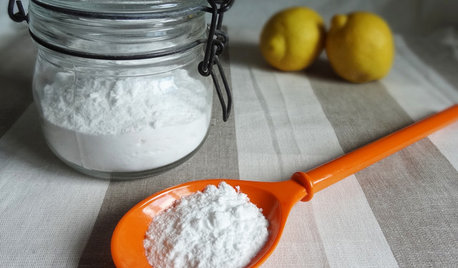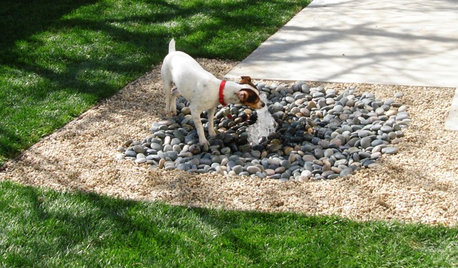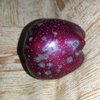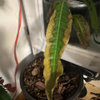SucraShield a new insecticide for soft bodied insects
fruitnut Z7 4500ft SW TX
14 years ago
Related Stories

GARDENING GUIDESOrganic Matters: Thwart Insect Pests With Trap Crops
Add a few sacrificial plants to your garden to lure insects away from the harvest
Full Story
GARDENING AND LANDSCAPINGBid Bad Garden Bugs Goodbye and Usher In the Good
Give ants their marching orders and send mosquitoes moseying, while creating a garden that draws pollinators and helpful eaters
Full Story
EDIBLE GARDENSGarden BFFs? Why Your Vegetables Are Begging for Companion Plants
Foster friendships among plants for protection from pests, pollination support and color camaraderie
Full Story
HOUSEKEEPINGBaking Soda: The Amazing All-Natural Cleanser You Already Own
Battle grime, banish odors and freshen clothes with this common nontoxic cupboard staple
Full Story
GARDENING GUIDES13 Risks to Take for True Garden Rewards
Go ahead, be a rebel. Breaking rules in the garden can lead to more happiness, creativity and connection with the earth
Full Story
MOST POPULARMeet a Lawn Alternative That Works Wonders
Carex can replace turfgrass in any spot, is low maintenance and adjusts easily. Add its good looks and you’ve got a ground cover winner
Full Story
MOST POPULARHow to Get Rid of Those Pesky Summer Fruit Flies
Learn what fruit flies are, how to prevent them and how to get rid of them in your home
Full Story
LIFEThe Top 5 Ways to Save Water at Home
Get on the fast track to preserving a valuable resource and saving money too with these smart, effective strategies
Full Story
GARDENING GUIDESWhat Kind of Roses Should You Grow?
Want to add the beauty of roses to your garden? Find out which ones, from old-fashioned to modern, are right for you
Full Story
MOST POPULAR8 Backyard Ideas to Delight Your Dog
Cue the joyous soundtrack. These pet-friendly landscape and garden ideas will keep your pooch safe, happy and well exercised outdoors
Full Story








alan haigh
Scott F Smith
Related Professionals
Danbury Landscape Architects & Landscape Designers · Bridgetown Landscape Architects & Landscape Designers · La Marque Landscape Architects & Landscape Designers · Woodinville Landscape Architects & Landscape Designers · Washington Landscape Architects & Landscape Designers · Edmond Landscape Contractors · Bellefontaine Neighbors Landscape Contractors · Ellensburg Landscape Contractors · Fountain Valley Landscape Contractors · Hoover Landscape Contractors · Rockwall Landscape Contractors · Salmon Creek Landscape Contractors · South Lyon Landscape Contractors · 07920 Landscape Contractors · Shafter Landscape Contractorsfruitnut Z7 4500ft SW TXOriginal Author
olpea
organic_mescalito
fruitnut Z7 4500ft SW TXOriginal Author
rhizo_1 (North AL) zone 7
alan haigh
myk1
Ernie
fruitnut Z7 4500ft SW TXOriginal Author
Ernie
mrcaballus
MrClint
waiting_gw
Ridgeview Ag Services LLC